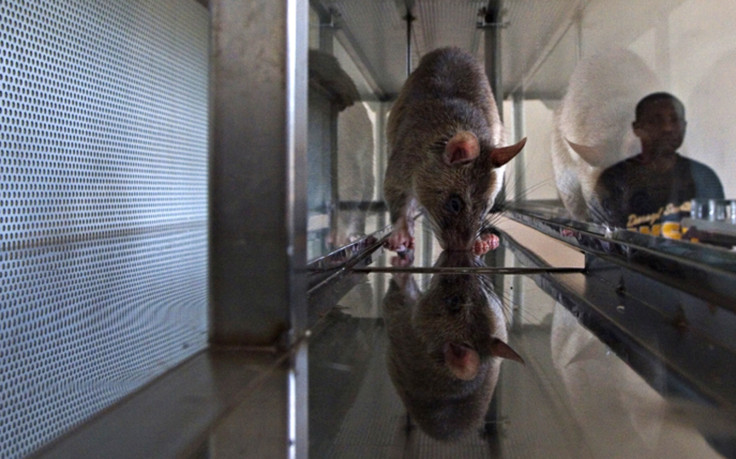Rats That Can Detect Tuberculosis by Smell Revolutionise Treatment in Africa

In a novel method of detecting tuberculosis, rats have been trained to pick infected sputum samples. Results indicate the rats are on track.
The rats have been trained by Apopo, a Belgian non-profit organisation known for its work in detecting landmines by using rats.
Nine African giant pouched rats have been accredited so far, passing a test where they work under blind conditions to identify every positive patient.
It takes nine months to train a rat, says Apopo. But once trained, a rat can screen thousands of samples a month.
The rats have screened over 27,000 sputum samples this year and over 226,931 samples since they began in 2007.
The rats are fast and effective taking less than eight minutes to sniff through five trays of 50 samples each.
In fact, they are faster than the average lab technician who runs the samples under microscope and checks for the presence of the bacteria.
At present the rats work in 21 medical centres in Dar es Salaam, Tanzania's capital, where they verify lab results covering around 75% of TB samples from medical centres in Mozambique's capital, Maputo.
Each rat costs between £4,000-5,000 to train, but relatively little to maintain over their six-to-eight-year life span, Emilio Valverde, manager of the Apopo Mozambique TB Program, told the National Geographic.
In comparison, the new rapid diagnostic test GeneXpert costs around £10,000 per device and between £6-10 per test.
A rat by itself may not be a good enough diagnostic tool as only 25% of results sniffed out turn positive.
However, according to Apopo, many cases that were believed negative turned out to be positive when double-checked using the rats. Almost 5,000 new cases were identified by the accredited rats.
Training method
The training uses the tried method of rewarding the rodent with food when it sniffs a sample with infected sputum.
Starting at a young age, the rats get to interact with people and their environs. Next, they are trained to associate a click sound with food. By raising its head and "pausing" when near a positive sample, it is taught to earn its food.
The need for faster TB detection in dense populations prompted Apopo to look at rats. The organisation is working to eradicate tuberculosis in sub-Saharan Africa.
The disease has claimed 480,000 lives in Africa in 2012, 58,000 of them in Mozambique. Every undetected case has the potential of infecting many others.
© Copyright IBTimes 2025. All rights reserved.





















